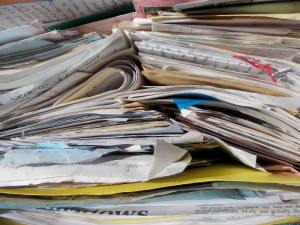“What are you doing? Is that airmail notepaper?”
It’s 7pm and people are drifting into my house for drinks. My French enemy-friend is among them and he’s caught me at my desk. (We are at war over graphic versus word novels – see my blog posts The Novel War and An Arty Business).
“Writing a letter,” I reply. His powers of observation are astounding.
He peers over my shoulder. I feel like hiding my words, but I know he’ll only make a comment about how we should assume our actions. I let him look. Anyway, he doesn’t understand English (on principle, in defiance of the Anglicisation of the French language).
“Shall I draw you some lines?” he asks.
I fold my arms and smile in what I hope is a condescending manner. I’d like to look down my nose at him, but he’s towering over me.
“It’s deliberate,” I say. “I want the words to be spaced out at the beginning and then get closer together and smaller as I go down the page.”
He looks intrigued. There’s no sign of belligerence. Perhaps he’s in a gentle mood this evening. I explain that it’s a submission to the literary journal The Letters Page, edited by my favourite writer, Jon McGregor. The idea of the journal is to send a real letter containing something literary. A select few are published. You can download the journal for free and read Jon’s poetic editorial. Oh, and the letters.
“Mine probably won’t be published, but I love the concept so I’m writing in,” I say. “Look how you can add an extra layer of meaning to your story by the way you present the letter.”
I show him the pdf of the summer edition of the journal, in which extracts of the original letters have been scanned.
“I’m sending mine with a balloon because it’s the basis of my story-letter,” I add.
He starts to grin in that smug way he has.
I stop. “What’s so funny?”
“Can’t you see? You’re creating a graphic story.”
“Rubbish. It’s a letter. I’m simply doing what the protagonist would do if she really were writing the letter. Don’t you want a beer or something?”
He has a point. Not that I’m admitting he’s right. I shove a beer into his hands and escape into the cave to get a bottle of red wine and prepare myself for his inevitable attack.
Tonight, however, he’s in a pacific mood. He talks about his hero, Scott McCloud, who wrote a (comic) book called ‘Understanding Comics’. I’ve read it. It’s brilliant, fascinating, surprising. But there’s no need for me to tell my enemy-friend this.
After a few beers he tells me that there’s not as much difference as you’d think between words and pictures. He tries to convince me that words are a kind of contemporary art, so that the word ‘cow’ is a graphic image that conjures up the picture of a cow in our imagination.
After a few more beers he launches into a lament that too many people think picture-stories are for children.
After a beer too many, he recounts an experience in a Bordeaux hospital waiting room. He was reading a Tardi graphic novel. Beside him, a man was reading a word novel. During the long wait, several people stopped and chatted to the man about the word novel. Nobody talked to my friend about his comic book.
I suggest it was perhaps because he looks like an escaped convict rather than because of his reading matter (I’d had a beer too many as well).
The next morning I sit down with an Alka-Seltzer to continue my graphic-story-letter.
In the name of research, I dig out the box of correspondence I’ve kept since my childhood and look through it (procrastination: every writer’s friend).
There are blurred words from tears. There are food stains and crumbs. There’s a scent of violets and a dried flower.
I miss not writing or receiving letters. I have a sudden desire to boycott the sterile perfection of processed words. I pick up my fountain pen and continue writing.
Jon McGregor, as I suspected, is a genius.

